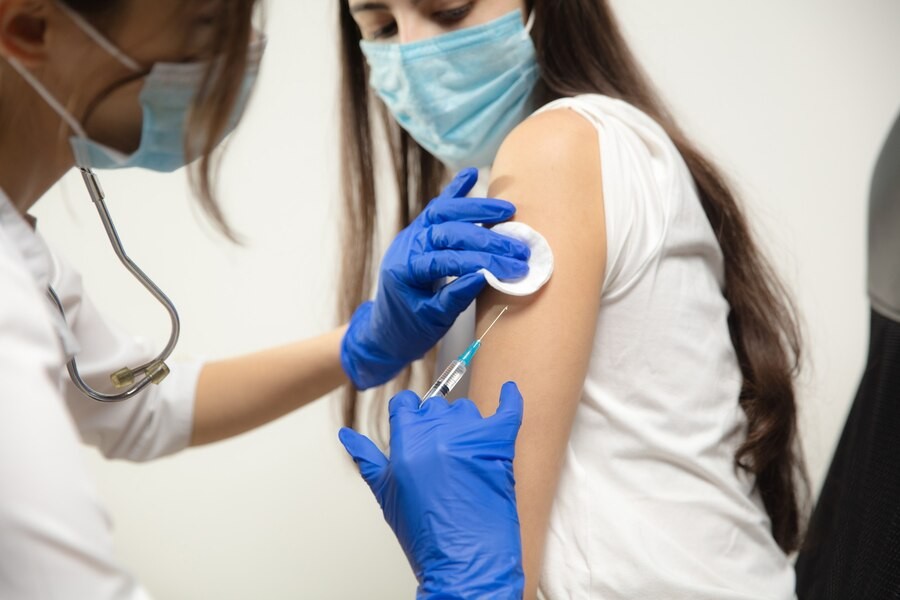A secure and efficient method of preparing the human immune system to combat specific illnesses is vaccination. Vaccines help the immune system recognize and remember pathogens, allowing the body to respond more quickly when exposed to real pathogens in the future.
Vaccines help prevent disease by building strong immune protection, which can often last a lifetime. This is one of the main reasons why vaccines are considered one of the most important tools in controlling the spread of infectious diseases.
What is herd immunity?
Interestingly, vaccines are not only beneficial for one's own immune protection. Vaccines can also provide herd immunity.
Herd immunity is when the majority of the population has immunity to a particular disease; this can give those who are not immune to the disease indirect protection.
When the majority of the population has immunity to the disease, it is difficult for the disease to spread, even to those who are susceptible or do not yet have immunity.
Why is herd immunity so important?
The concept of herd immunity is considered very important for several reasons, including:
Provides protection to vulnerable groups
People who cannot develop immunity on their own, such as those who have never had the illness, have weakened immune systems, or are unable to receive the vaccine due to certain medical conditions, can be protected by herd immunity. Herd immunity reduces the likelihood of contracting an infection.
Prevents the spread of disease
Herd immunity helps reduce the spread of infectious diseases, especially within a community. When a large portion of the population is immune to a disease, it is harder for the pathogen to spread and cause an outbreak.
Provides sustained protection
Long-term population protection against infectious diseases depends on achieving herd immunity. Furthermore, herd immunity also helps prevent infectious diseases from developing into outbreaks in the future.
Breaking the chain of transmission
Herd immunity helps break the chain of disease transmission. When some people have immunity, it is difficult for pathogens to spread and cause further infections.
Is it acceptable to rely on herd immunity to avoid vaccinations?
While herd immunity provides protection, especially for vulnerable groups who cannot get vaccinated, it is best not to intentionally ignore vaccines on the grounds of herd immunity.
Refusing to receive a vaccination raises the possibility of lowered herd immunity levels, which could lead to outbreaks or a rise in the number of infectious disease cases.
If you need medical advice or consultation, you can either visit a doctor or make use of the consultation features that are available in the Ai Care application by downloading the Ai Care application from the App Store or Play Store.
Looking for more information about pregnancy, breastfeeding, and the health of women and children? Click here!
- Sean Edbert Lim, MBBS
Kids Health (2022). What Is Herd Immunity?. Available from: https://kidshealth.org/en/parents/herd-immunity.html
Infeksi Emerging (2020). Apa itu Herd Immunity (Kekebalan Kelompok) ?. Available from: https://infeksiemerging.kemkes.go.id/uncategorized/apa-itu-herd-immunity-kekebalan-kelompok
Dr. Sanchari Sinha Dutta, Ph.D. (2021). What is Herd Immunity?. Available from: https://www.news-medical.net/health/What-is-Herd-Immunity.aspx
NHS UK (2023). Why vaccination is important and the safest way to protect yourself. Available from: https://www.nhs.uk/conditions/vaccinations/why-vaccination-is-important-and-the-safest-way-to-protect-yourself/
NHS UK (2023). NHS vaccinations and when to have them. Available from: https://www.nhs.uk/conditions/vaccinations/nhs-vaccinations-and-when-to-have-them/
UNICEF: Vaccines for children: Your questions answered. Available from: https://www.unicef.org/parenting/health/parents-frequently-asked-questions-vaccines
CDC (2023). What Vaccines are Recommended for You. Available from: https://www.cdc.gov/vaccines/adults/rec-vac/index.html











